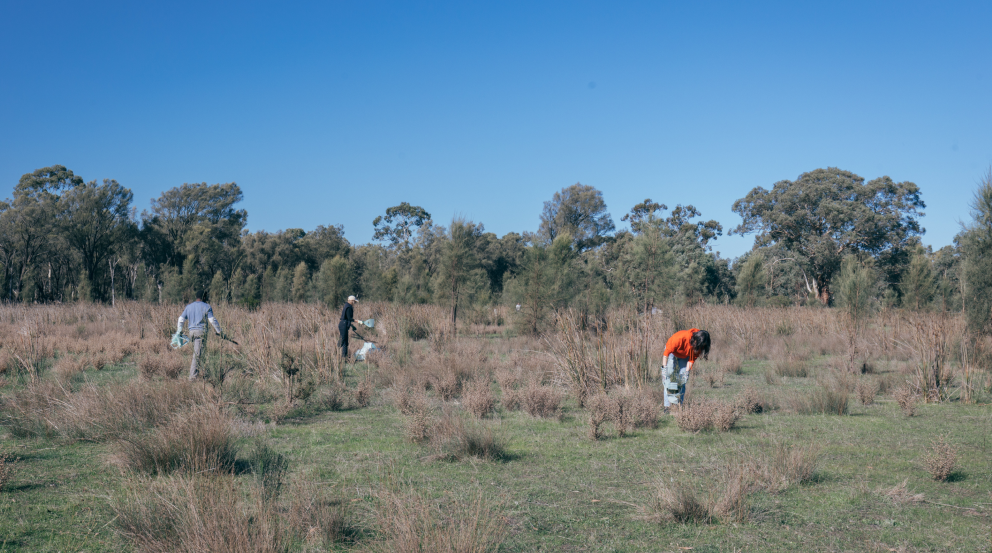It’s one thing to take individual action when it comes to fighting the climate crisis – but imagine how powerful it would be to get your entire workplace on board. Bank Australia customer Lucy Piper, who heads up WorkforClimate, can help you make that happen. Here’s how.
Lucy Piper’s climate awakening happened on a tram in 2019. She’d just returned to work after taking parental leave, and her morning commute was a good time to catch up on the news. “I was watching Greta Thunberg’s speech to the UN, and she said the words: ‘We will never forgive you’,” Lucy recalls. “I felt like she was talking directly to me and that I needed to do more.”
Despite working in a “very progressive company”, Lucy took this as her penny-drop moment. She needed to make climate her full-time job.
She was introduced to a few people who were talking about how to harness the energy of employees within the global corporate sector, including Bryan J. Rollins, who’d just founded an organisation called WorkforClimate in partnership with The Sunrise Project. A few conversations later, Lucy was offered the role of leading the WorkforClimate team.
WorkforClimate is a platform that helps professionals learn exactly what they need to do to get their workplaces to shift faster on decarbonisation. The platform provides the coaching, tools, guides and community needed to make things happen. “It’s a place where professionals can learn from us, learn from experts, learn from each other, and figure out how to decarbonise the global corporate sector faster,” Lucy explains.

The majority of people who sign up to WorkforClimate aren’t climate experts, or even on their organisation’s sustainability teams. “It’s everyday people, like you and me, who are starting to realise how big the impending catastrophe and collapse of climate systems is,” she says. “These people have realised that what they’re doing as individuals isn’t going to be enough to turn things around. WorkforClimate is helping those people take action at work; it has a much bigger impact than taking individual steps to reduce your emissions.”
Along with sharing regular content and a weekly email, WorkforClimate’s main offering is a 10-week online program called the WorkforClimate Academy. It covers the technical side of how to decarbonise from within a business across four key areas: switching to renewable energy, reducing emissions, lobbying and advocating for policy change, and moving corporate investments into ethical funds. “The financing of fossil fuels is the thing that’s prolonging the lifetimes of the coal, oil and gas industries. Moving your money, and then convincing your corporation to move their money, investments and superannuation… it’s such a powerful intervention,” she says. “I’m in massive awe of organisations like Bank Australia and the work that they’re doing.”
Participants are also coached in influence, executive presence, leadership, and power mapping. “We cover all the softer skills that come with driving change inside an organisation or community, to really coach them into being the leaders we need to push for more ambition and change in the corporate climate sector,” Lucy says. She adds that the connections and communities built within the course are some of its most valuable elements.
“We cannot leave [climate action] on the shoulders of the under-resourced and overworked sustainability departments of corporations,” she says. “We’re at the point where every job needs to be a climate job. That’s the thing we’re trying to teach people.”
Keep your eye on the WorkforClimate website for the next Academy intake.








